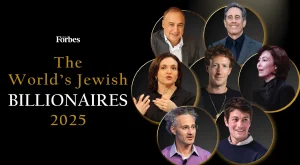Ron Nissim and Avi Zetser starting points couldn’t have been further apart. Nissim was born in Texas and was the only Jewish child in the public school he attended. “As a child, I was sure I would grow up to be a doctor, like every good American Jew”, he says. When he was 15, the family made aliyah to Israel.
Far from there, in the USSR, Avi Zetser’s father was one of the country’s senior psychiatrists. “My parents gave up their status and left everything for Zionism, made aliyah and settled in Safed”, he recounts.
Ron and Avi met during their shared military service. “We were very close during the service and knew that when we were discharged, we would set up a startup together”, Ron says. “The loneliest point, without a doubt, was the beginning. There’s something very arrogant about getting up right after military service and saying ‘I will change the world’. We said we would learn as we go. We knew we would make mistakes, but we thought we could fix them on the go and quickly. It turned out that it’s easy to say but hard to implement. Our path to initial capital was long and winding”.
“Investors said no”
In 2021, the two established Entitle, a startup specializing in a field that might sound gray or boring, but is essential in every technological organization: an automation system that provides cloud service access permissions to employees in the company. Nissim served as the company’s CEO, and Zetser — as the Chief Technology Officer (CTO).
“We were rejected three times to Y Combinator (Sam Altman’s famous accelerator that bets on the big success stories in high-tech at a very early stage). There wasn’t an investor who didn’t say no to us”, Avi recounts.
“Despite the supportive environment, we felt that people were looking at us in bewilderment and asking why we continue if the venture isn’t taking off after a year. When we were discharged, we agreed that we’re giving entrepreneurship six months full-time, and if we don’t succeed – we’ll try again later. In practice, after the first six month there were mainly failures and dozens of ‘nos, but we couldn’t implement our decision and quit. It was clear to us that we’re continuing, so we started doing some consulting on the side to earn more time”.
Last year, when investments in high-tech began to dwindle, they raised 15 million dollars led by Glilot Capital and a few private investors.
“Our peak point (so far) is undoubtedly the first customer we closed. For the first time, there was a feeling that all the effort of the year and a half we went through until this stage – the fundraising process, employee recruitment, development, planning – everything converged to one point where someone put their hand in their pocket and paid for the product”.
Like many startups in the country, some of Entitle’s employees were recruited for reserve duty on October 7. “Even those who were in the reserves worked at every free moment – including on weekends, around the clock,” Zazer describes. The Israeli team, led by Avi, who was in the country during the war period, focused on supporting the victims of the massacre. The company donated computers and complementary equipment to hospitals, provided hot meals to residents of the south, and worked to find safe and new housing options in central Israel. In addition, the company made sure to purchase essential combat equipment for soldiers on the front.
The team in New York, led by Nissim, focused on raising awareness about the massacre through advocacy activities, internal company communication, fundraising, and raising awareness among non-Israeli industry people.
Nissim: “I moved to the U.S. two months before the war to open the American branch of the company. It was extremely difficult to be a bystander to such a significant event at home. Suddenly there’s a feeling that you need to leave everything behind and hurry to the unit, to look for ways to help. At some point, I realized that actually the place where I can have the most impact is in the community in New York, in fundraising, and in parallel to ensure that customers know they can rely on us.
“It’s very frustrating when a customer asks ‘What happens if a missile falls on Entitle’s building in Tel Aviv – what will happen to customer service?’, or when an investor asks ‘How many of the company’s people are in the reserves?’
“In the end, our biggest victory over our enemies is that the reservists from Entitle have a thriving company and ecosystem to return to”.





